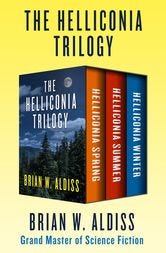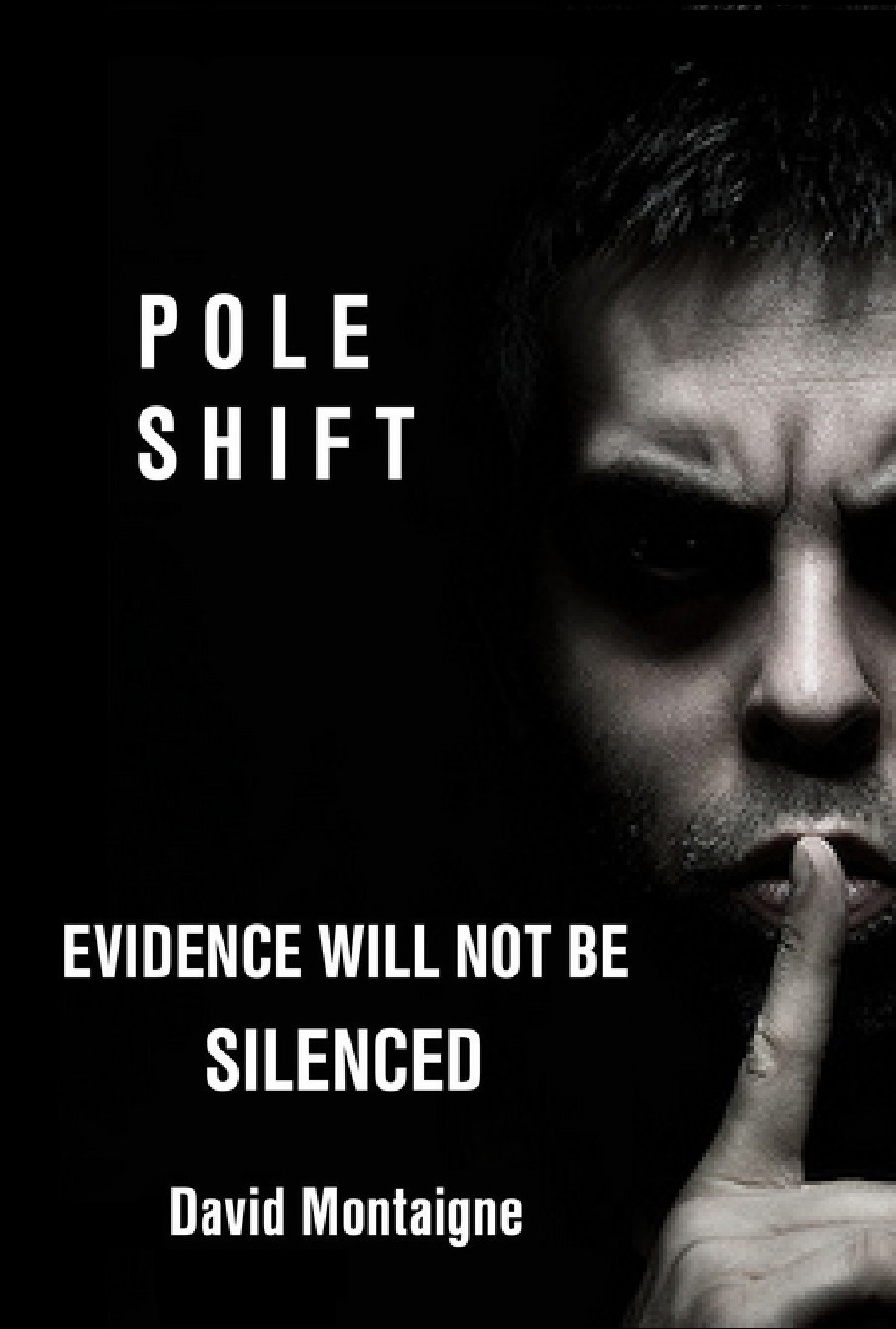Helliconia: Alien Pole Shift Metaphor?
Sometimes you have a forum for saying something important but you aren't allowed to say it directly for political reasons. One of the highest rated TV shows of all time, M*A*S*H* - was in theory about the Korean War, but was intended (and succeeded) to promote a powerful anti-war message about Vietnam, the war actually claiming American lives when the show aired.
I have pointed out many times that The Adam and Eve Story by Chan Thomas was classified for fifty years, and only partially declassified and re-released in 2016 on the CIA.gov web site - with who knows what information about the next POLE SHIFT left out.
What if British author Brian Aldiss, like me, felt he understood the great year, the cycle of pole shifts and ice ages and the rise and fall of civilizations - but didn't feel he could openly promote the truth? What if he decided that instead of trying to expose a cover-up of pole shifts or prove the existence of Earth's "Great Year" of a periodic cycle of catastrophes - what if he decided to write and promote a fictional metaphor instead?

In the early 1980s, Aldiss started writing a trilogy of science fiction novels about an alien planet called Helliconia. (Similar to the recently discovered exoplanet Kepler 22B.) This world was discovered and observed by human space explorers from Earth, who watched over the planet without interfering from an orbiting spaceship. The planet Helliconia was similar to Earth in many ways, including having a dominant species very, very much like humans from Earth. But Helliconia's star has a binary companion, and both the planet and the star it orbits have a multi-millenial elliptical orbit around the binary companion star which affects and dominates evolution and the rise and fall of civilization on Helliconia. "Helliconia orbits Batalix, which in turn orbits Freyr." (Aldiss is no stranger to mythology or ancient traditions... Freyr was a Norse god associated with sunshine, fertility, good harvests, prosperity, wealth, kingship, and human pleasure.) Climate gets much hotter (over many centuries) when close in the orbit to the second star, and gets colder when far from it.
A long description of the books: Helliconia Spring, Helliconia Summer, and Helliconia Winter - can be found on Wikipedia.
As one reader's top comments on Helliconia Spring state: "I think the Helliconia trilogy ranks as the finest in Science Fiction's long, proud history. It is a work of breath-taking scope envisioned masterfully with incredible attention to detail. It is almost as if Aldiss has been there and witnessed this grand tale first-hand and he effortlessly takes you along for the ride."
The reader commentary continues: "The stories take place over a span of 10,000 years, the period of one of Helliconia's Great Years. Basically, the planet orbits one star in a binary system, so it has a normal year like we do but, because it's sun is in a long, elliptical orbit around it's partner, it experiences massive climate changes over it's 10,000 year orbit. In the great summer, human civilisation blossoms but every ice-bound winter is wiped out, having to start again from scratch in the next great spring."
I must correct the person writing the nice book review: the orbit of Batalix around Freyr is not 10,000 years but 2,592 years - and this detail is crucial to appreciate - because Earth's own "Great Year" - our cycle of the precession of the equinoxes is estimated to last between 25,800 and 26,000 years. Plato and other classical figures considered a half cycle to be of great importance and put it at 12,960 years; the full cycle of precession at 25,920 years. This is exactly ten times longer than the very specific 2,592 years for Helliconia. I cannot assume this is a coincidence. My research suggests that, in the tradition of the Greek belief in Epyrosis and Kataklysmos - cataclysms by alternating world ages of fire and ice devastate the Earth every 12,960 years - one half cycle of 25,920 years.
In Aldiss'early short story The Interpreter, "Earth is just a lesser-than-third-class colony ruled by a Nul tyrant whose deceiving devices together with good willing but ineffective attempts of a Nul signatory to clarify the abuses and with the disorganised earthling resistance reflect the complex relationship existing between imperialists and subject races which Aldiss himself had the chance of seeing at first hand when serving in India and Indonesia in the forties." Wikipedia moderators clearly recognize Aldiss' use of science fiction as social commentary about real problems on Earth.
I am also drawn to Aldiss' earlier story Hothouse (the American version was called The Long Afternoon of Earth) in which the sun has increased output and the Earth has stopped rotating. Certain themes of cosmic catastrophes changing the course of civilization dominate his Hugo (and Nebula, and many other...) award winning work. But the details of temporarily increased solar output and temporarily ceased planetary rotation might be very real parts of pole shifts on Earth (especially if Douglas Vogt is correct.)
It makes me wonder if Aldiss' multi-millennia cycle of Earth Helliconia-changes is meant to reveal the truth about our own history of pole shifts on Earth... If the binary companion star Freyr represents our own sun's possible binary companion (Nemesis? Sirius?) and if the Earthlings (so much like Helliconia's own humans) that watch benevolently over Helliconia from their orbiting observation post (the Avernus) represent very similar aliens, or even some breakaway human civilization distantly related to us - watching over Earth from above - do we have "overseers" we aren't all aware of?
Aldiss himself said: "my novel would fulfill all the obligations of true science fiction by encompassing, not only scientific knowledge still under debate, but speculation based on that knowledge. Time will test the accuracy of my guess." Such comments make me wonder if he expected the end of one of Earth's "Great Year"s soon (I do) and if he expected civilization-destroying Earth changes soon enough to test the accuracy of his not yet long-forgotten guess...
But it's just a silly daydream that Aldiss actually knew something and hid it in his fiction though, right? I mean, Kubrick nobody has ever done that... Nobody Orwell ever writes about one time and place when they really mean it about us right here and now... That kind of chicanery would never happen in Britain...


[youtube https://www.youtube.com/watch?v=75rLHHcju2Y&w=560&h=315]

